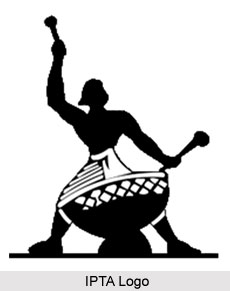 Contribution of IPTA to Punjabi theatre has led to the enhancement of the theatre culture in the Indian state of Punjab. During the freedom movement before independence, theatre activity had assumed far greater relevance than before, and links between the Indian arts, especially theatre arts and the resurgence of Indian people, had become stronger. The Indian People`s Theatre Association (IPTA) movement in the realm of drama and theatre was responsible for greater participation of the masses in different art activities, particularly in theatre, as a result of which drama went closer to the day-to-day routine of the life of people. The theatre arts were no longer conceived as mere means of entertainment, but they were reoriented toward playing a greater role as instruments of social awakening.
Contribution of IPTA to Punjabi theatre has led to the enhancement of the theatre culture in the Indian state of Punjab. During the freedom movement before independence, theatre activity had assumed far greater relevance than before, and links between the Indian arts, especially theatre arts and the resurgence of Indian people, had become stronger. The Indian People`s Theatre Association (IPTA) movement in the realm of drama and theatre was responsible for greater participation of the masses in different art activities, particularly in theatre, as a result of which drama went closer to the day-to-day routine of the life of people. The theatre arts were no longer conceived as mere means of entertainment, but they were reoriented toward playing a greater role as instruments of social awakening.
IPTA also worked for obliterating the link between theatre and audience and bringing it close to their hearts. It also brought about a significant change in the Punjabi theatre in the sense that it extended its area of operation by making possible its convergence with theatre activity in the rest of the country. This resulted in the liberation of Punjabi theatre from inhibitions of academicism and middle-class prudery, and the IPTA movement in Punjab made it possible for appearance on the theatre scene of artists like Shiela Bhatia, the well-known film star Balraj Sahni, Balwant Gargi, Tera Singh Chan, Joginder Bahrla, Pandit Khalili, and others, who made serious efforts to take Punjabi theatre to the masses and evolve a powerful idiom of dramatic conflict.
This article is a stub. You can enrich by adding more information to it. Send your Write Up to content@indianetzone.com




















